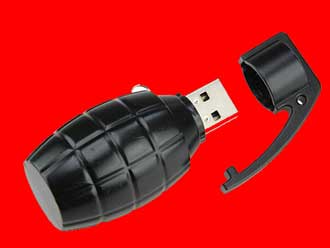 Hardware hackers building interactive gadgets based on Arduino microcontrollers are finding that a recent driver update that Microsoft deployed over Windows Update has bricked fake FTDI chips.
Hardware hackers building interactive gadgets based on Arduino microcontrollers are finding that a recent driver update that Microsoft deployed over Windows Update has bricked fake FTDI chips.
The Scottish outfit FTDI makes USB-to-serial chips. They are very popular and every microcontroller and embedded device out there that can communicate over a serial port uses one. As a result there’s a vast number of knock-off chips in the wild that appear to be made by FTDI, but in fact aren’t.
FTDI develops drivers for its chips which are obtained directly from FTDI, or they can be downloaded by Windows automatically, through Windows Update. But the latest version of FTDI’s driver, released in August, contains some new language in its EULA reprograms counterfeit chips rendering them largely unusable. According to its license:
Use of the Software as a driver for, or installation of the Software onto, a component that is not a Genuine FTDI Component, including without limitation counterfeit components, may irretrievably damage that component.
Of course no one reads the licence, which is stored inside the driver files, but at least the owners of cloned chips were warned.
What is also happening though is that developers who thought that they had bought legitimate FTDI parts are suddenly discovering that their supplier has been ignoring design specs and using knock-offs.
The new driver reprograms the PID of counterfeit chips to 0000 which means that necause this PID does not match any real FTDI part, the FTDI drivers no longer recognise the chips, and block access. This PID is stored in persistent memory, so once a chip has been reprogrammed it will continue to show this 0000 PID even when used with older drivers, or even when used with Linux.
FTDI has recovery software that enables chips to be reprogrammed, and when used with some older drivers, it appears to be possible to reinstate the “correct” PID. If the chips are ever used with the recent drivers, however, their PID will once again be set to 0000.
While there is some amount of sympathy for a hardware company that is having its products so widely cloned, there is a great sense that FTDI has gone too far by rendering them inoperable.
More here http://www.eevblog.com/forum/reviews/ftdi-driver-kills-fake-ftdi-ft232/.
 75.7 million personal and entry level storage products shipped in 2014 and that means the market was essentially flat.
75.7 million personal and entry level storage products shipped in 2014 and that means the market was essentially flat.






